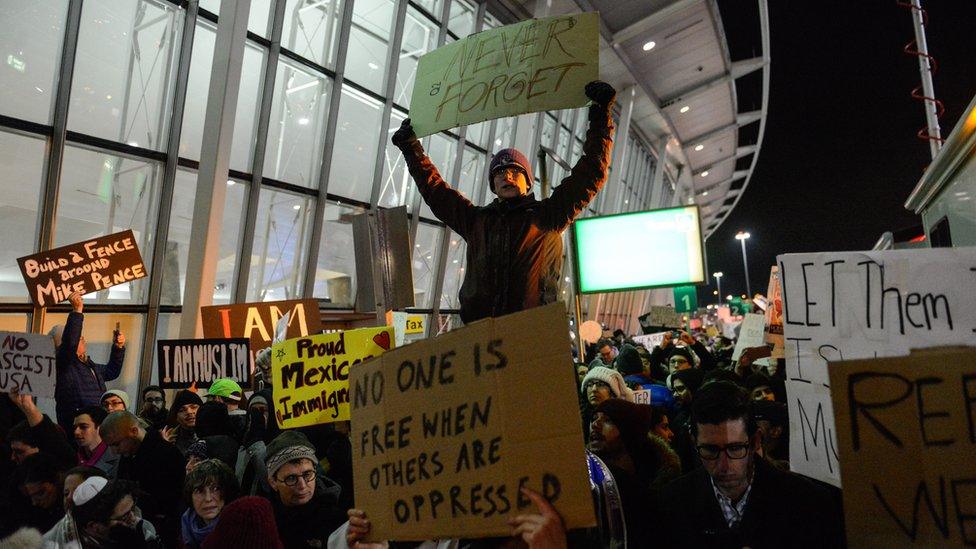Trump travel ban: Canada's tech firms see opportunity
- Published
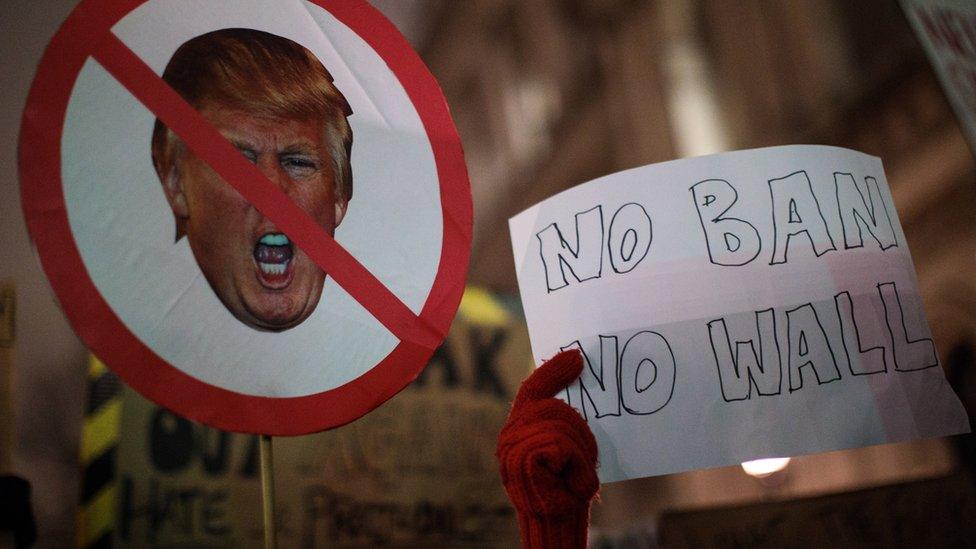
President Donald Trump ban on travel sparked protests worldwide
As US tech giants take steps against President Donald Trump's travel ban, Canada's tech scene is hopeful the executive order will help bring much needed talent to the sector north of the border.
Canadian firms see an opportunity to lure talent even as they struggle with the impact of the ban on their business, and are seeking a fast-track visa to help them bring top candidates to cities like Toronto, Vancouver and Montreal.
Kasra Nejatian is among those leading a charge to assist the sector to hire tech workers rejected at the US border due to the recent executive order, which temporarily barred nationals from seven Muslim-majority countries from entering the US.
The Iranian-Canadian chief executive of Kash, a tech company with offices in San Francisco and Toronto, has created an online list of resumes - he has over 180 names so far - to share with tech executives in Canada.
Mr Nejatian, who helped craft Canada's own immigration policies under the previous federal Conservative government as a senior adviser to a former immigration minister, does not mince words when it comes to the executive order.
"It's confusing and irresponsible, with tinges of racism," he said.
"There's great reason to be worried about the security of the US border. Americans should be worried about it. But there are things that help and there are things that hurt. This will hurt."
The order included a 120-day pause on the admission of all refugees and a 90-day pause on entry for people from Iran, Iraq, Libya, Somalia, Sudan, Syria and Yemen.

Kash CEO Kasra Nejatian has been outspoken on the ban
The US policy has had repercussions for the global tech industry.
A group of 97 US tech firms have filed a legal document stating that President Trump's immigration ban affects their operations and "inflicts significant harm" on business.
The amicus brief, external, which allows parties not directly involved in a case to give their view, includes Silicon Valley giants like Apple, Facebook and Microsoft.
There is currently a stay on the ban, issued on Friday by a federal judge, that allows visa holders from the seven countries covered by the executive order to enter the US until the full case has been heard.
But with so much confusion around Mr Trump's order, many have doubts about travelling between the US and Canada.
Mr Nejatian says for the moment, he is staying put in San Francisco.
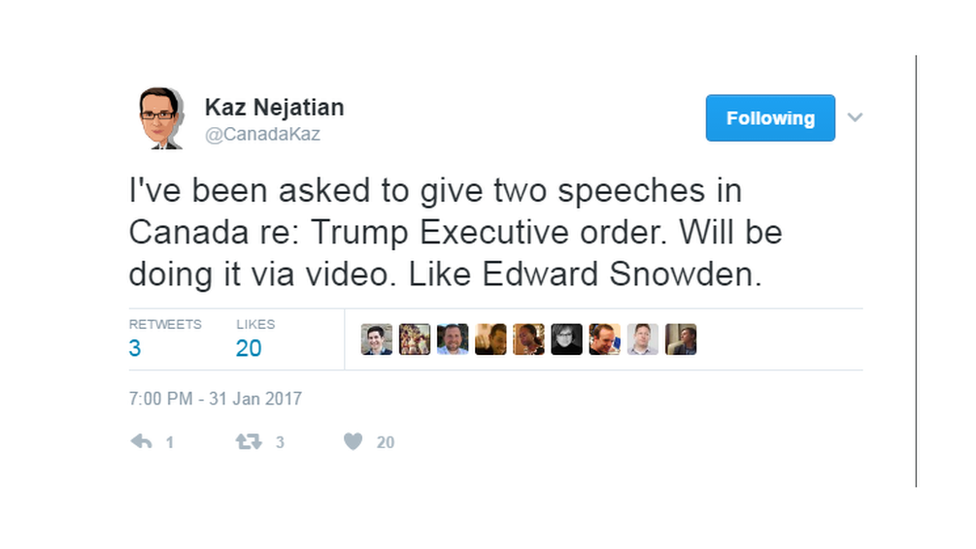
Kash CEO Kasra Nejatian has taken to Twitter to criticise the ban
Stephen Green, a specialist in immigration law, told the BBC that application of the policy "varies from border to border, there's no consistency through the system".
His company has been fielding calls over the past few days from start-ups looking to set up shop in Canada and global companies interested in increasing their presence in the country "because we have predictability here".
Canadian firms say their doors are wide open for the tech talent left out in the cold.
On 29 January, over 150 executives signed an open letter, external underscoring their support for diversity and pluralism in the workforce. By this week, there were over 3,400 signatories, including executives from domestic companies like Shopify, and venture capital firms like OMERS Ventures.
The letter also called on the Canadian government to institute a targeted visa providing tech workers displaced by the policy with temporary Canadian residency, one that would allow them live and work in the country.
Allen Lau, co-founder of Wattpad and among the signatories, says "Canada always supported inclusive nationalism and we embrace that recipe".
But the sector has struggle to compete with places like Silicon Valley for the best employees, and a talent gap of 200,000 high tech workers is projected by 2020, according to the Information and Communications Technology Council, external.
The shift in the US could be an incentive for people to look north for work, especially if the ban grows and starts applying to other nationalities and visa categories.
"Canada as a country is in a very unique place on the planet right now, has a unique message, is a unique differentiator. That will allow us to attract the best talent," Lau said.
- Published28 January 2017
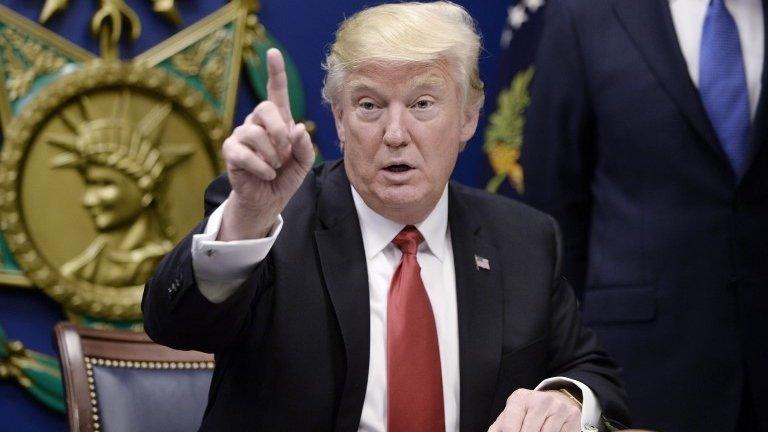
- Published31 January 2017
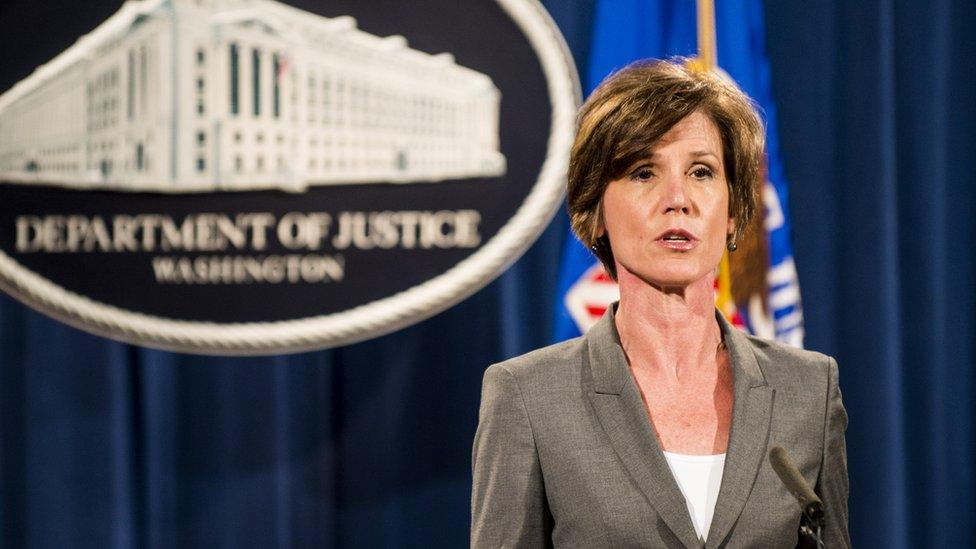
- Published29 January 2017
